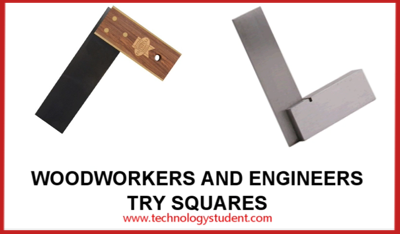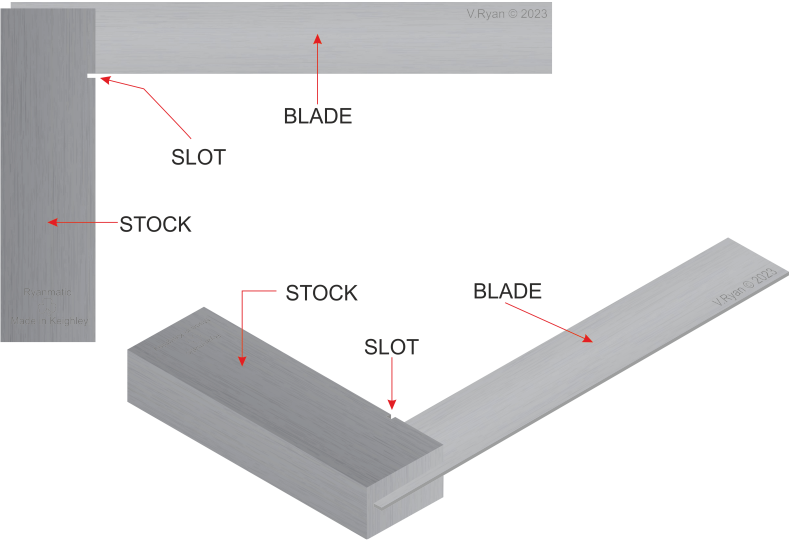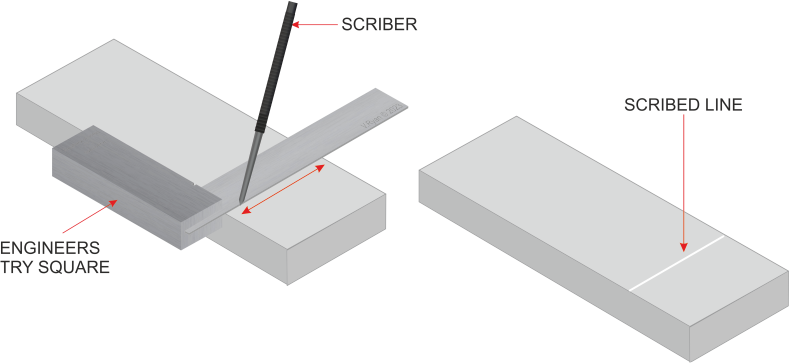| CLICK HERE FOR INDEX PAGE | |
| THE ENGINEERS TRY-SQUARE | |
| V. Ryan © 2002 - 2023 | |
| PDF FILE - CLICK HERE FOR PRINTABLE WORKSHEET | |
| CLICK HERE FOR POWERPOINT VERSION | |
| VIDEO OF WOODWORKERS AND ENGINEERS TRY SQUARE | |
 |
|
| The engineers try-square is composed of two parts, the stock and the blade. They are usually made from bright mild steel with the blade being hardened and tempered so that it resists damage. It is normally used during engineering / metalworking projects | |
 |
|
| A typical use of an engineers try-square is to mark
out material for cutting/shaping. The try square is pushed against a straight side of the material (eg. steel). An engineers scriber is then used to scratch a line onto the surface of the metal. Sometimes engineers blue (a dye/ink marking out fluid) is wiped onto the surface first so that the scratched line can be seen easily. The material is then cut down to this straight line. |
|
 |
|
| Look closely at an engineers try-square, you should
see an interesting feature. There should be a small slot that has been
cut into the stock. This prevents small burrs caused by filing from
altering the try-squares accuracy. Dirt can also collect on metal
surfaces, again the slot helps prevent measuring angles inaccurately. In the example seen opposite, the try-square is used to test that a 90 degree angle exists across the edge of the steel. Although a burr exists on the edge of the steel it fits into the slot and does not affect the way the try-square is used. |
|
 |
|
| Draw an engineers
try-square and label each part. Sketch one typical use of an engineers try-square. |
|
|
|
|